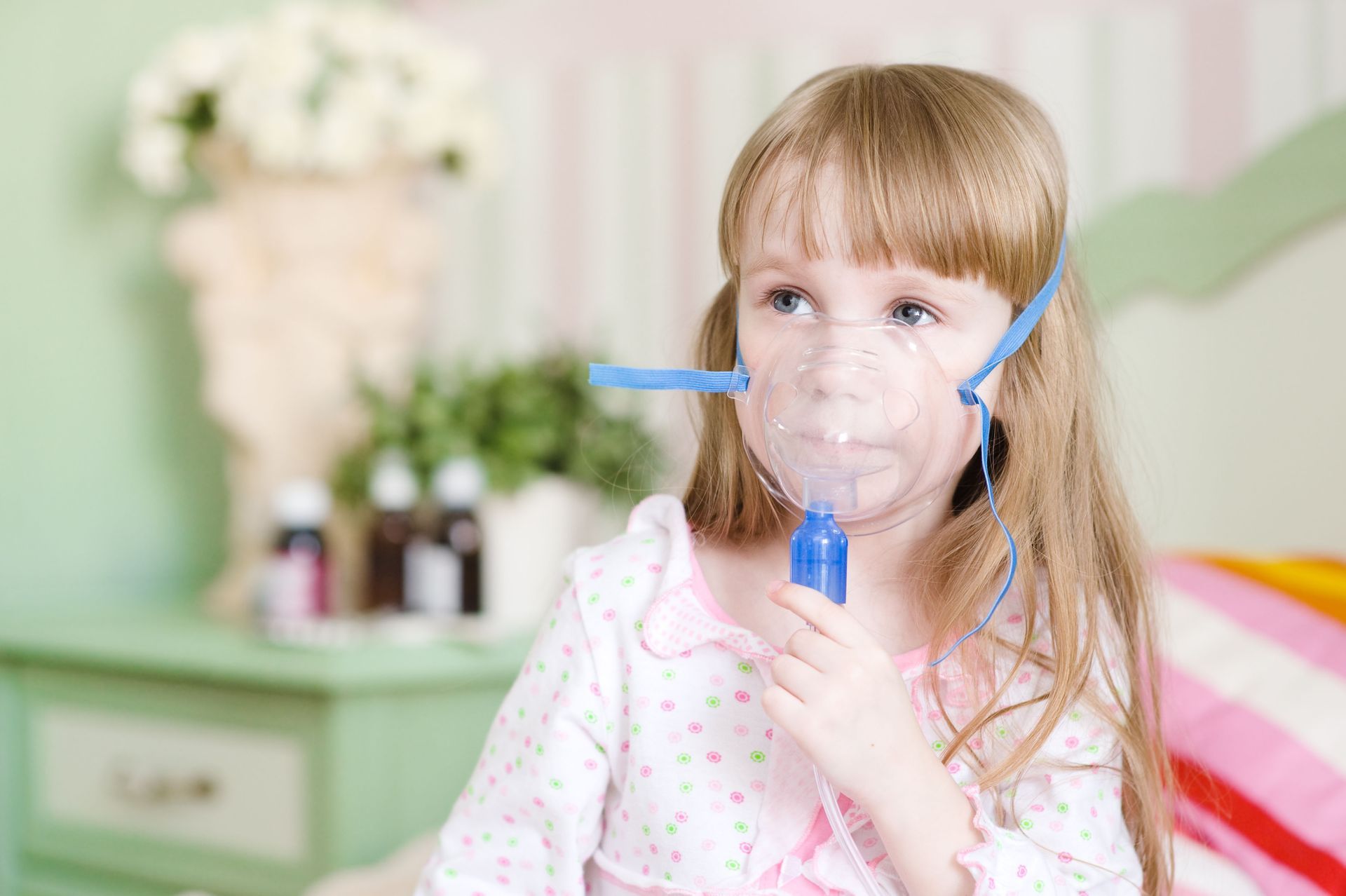November 14, 2025
Pediatric urgent care clinics provide essential care for children and adolescents who experience sudden illnesses or injuries that do not require an emergency room visit. These clinics are equipped to handle a wide range of conditions, from minor injuries to common infections, offering timely evaluation and treatment. Children are particularly susceptible to illnesses and injuries due to their developing immune systems and active lifestyles. Understanding the common conditions treated at urgent care helps parents make informed decisions about when to seek medical attention and ensures children receive prompt care to prevent potential complications.
1. Address Respiratory Infections in Children
Identifying Common Cold Symptoms
The common cold is one of the most frequent reasons children visit urgent care clinics. Symptoms such as a runny nose, sneezing, coughing, and mild fever often prompt parents to seek medical advice to relieve their child's discomfort. Pediatric care providers focus on symptomatic relief, offering medications to ease congestion and reduce fever while providing guidance on proper hydration and rest to support recovery and prevent secondary infections.
Recognizing Mild to Moderate Respiratory Illnesses
Children often visit pediatric urgent care for respiratory infections such as colds, flu, and other viral illnesses. Providers offer guidance for home care, monitor symptoms, and assess conditions that may require additional evaluation. Education on preventive measures and symptom recognition helps parents manage illnesses effectively at home and reduce repeated urgent care visits.
Supporting Asthma and Chronic Respiratory Conditions
Urgent care providers support children with asthma or other respiratory sensitivities by offering immediate care during flare-ups. They provide guidance on symptom recognition and advice on when urgent medical attention is needed. This ensures that children receive timely interventions for acute episodes while supporting overall respiratory health.
2. Evaluate Ear Infections and Related Complications
Recognizing Ear Infection Symptoms Quickly
Ear infections, or otitis media, are common reasons for pediatric urgent care visits. Symptoms include ear pain, fussiness, difficulty sleeping, and sometimes fever, prompting parents to seek quick evaluation. Urgent care professionals use an otoscope to confirm the diagnosis and determine severity. Early intervention with antibiotics for bacterial infections and analgesics for pain relief is crucial. Providers also educate parents on recognizing symptoms and managing pain at home to ensure effective recovery.
Understanding Causes and Risk Factors
Understanding causes and risk factors for ear infections helps parents prevent complications. Ear infections often follow upper respiratory illnesses because children's Eustachian tubes are shorter and more horizontal, facilitating the spread of germs. Exposure to smoke, bottle-feeding while lying down, and daycare attendance can increase infection risk. Pediatric urgent care providers guide families on minimizing risks and maintaining proper vaccinations to reduce the incidence and severity of ear infections.
Exploring Effective Treatment Options
Urgent care clinics offer treatment options based on the type and severity of the ear infection. Antibiotics are prescribed for bacterial infections, and analgesics are used to manage pain. Follow-up care is important to ensure the infection clears completely and to prevent recurrence or complications such as hearing loss. Visits also provide opportunities to discuss preventive strategies and monitor response to treatment. Timely intervention ensures quick recovery and reduces stress on children and parents alike.
3. Manage Gastrointestinal Issues Effectively
Addressing Stomach Flu Symptoms and Risks
The stomach flu, or viral gastroenteritis, is a frequent pediatric urgent care concern, presenting with vomiting, diarrhea, and abdominal pain. Rapid dehydration is a primary risk, particularly in young children, which makes urgent care intervention critical. Providers offer rehydration solutions, dietary guidance, and advice for home monitoring. Parents learn to recognize signs of dehydration and manage hydration to prevent complications. Understanding the contagious nature of the illness helps limit its spread within families and communities.
Treating General Gastrointestinal Concerns
Urgent care clinics treat vomiting, diarrhea, and general stomach discomfort with rehydration and symptom management. Providers educate parents on home care and the warning signs that indicate when further evaluation is needed. Prompt attention helps children recover safely while reducing the risk of additional health issues.
Relieving Constipation and Supporting Digestive Health
Constipation is a common reason for urgent care visits when it becomes severe or painful. Pediatric urgent care providers offer dietary advice such as increasing fiber and fluid intake, and may recommend stool softeners or laxatives when necessary. Families are guided on recognizing symptoms, establishing healthy bowel habits, and encouraging physical activity to support digestive health. Education ensures effective management and reduces recurring episodes, promoting overall well-being for children.
4. Treat Traumatic Injuries Promptly
Assessing Falls and Fractures with Urgency
Falls and fractures are frequent reasons children require urgent care. According to the Cleveland Clinic, it's estimated that around 1 in 100 children breaks their ulna or radius each year. Clinics provide diagnostic imaging such as X-rays to evaluate the injury and determine treatments like casting or splinting. Providers offer guidance on activity restrictions and follow-up care to ensure proper healing and reduce future injury risks. Safety education also helps children understand precautions and minimize accidents during play.
Managing Sprains and Strains Safely
Sprains and strains are common musculoskeletal injuries treated at pediatric urgent care clinics. The RICE method—rest, ice, compression, and elevation—is recommended to manage swelling and pain. Supportive braces, wraps, and over-the-counter pain relief are often advised. Providers guide parents on recognizing when a sprain needs further medical attention, preventing long-term joint complications. Rehabilitation exercises help restore function and encourage a safe return to activity.
5. Monitor Skin Rashes and Allergic Reactions
Managing Eczema Flare-Ups Consistently
Eczema is a chronic skin condition that frequently brings children to urgent care during flare-ups. Providers offer topical treatments to relieve itching and inflammation while advising on trigger identification. Education on skincare routines, moisture retention, and avoiding irritants supports effective eczema management. Clinics monitor treatment responses and adjust plans for the child's individual needs. Empowering families with knowledge helps maintain skin health and reduce recurrence.
Responding to Allergic Reactions Accurately
Allergic reactions of varying severity often require urgent attention. Mild reactions may need only antihistamines and monitoring, whereas severe anaphylactic responses require immediate epinephrine administration and emergency follow-up. Providers educate families on recognizing allergy signs, managing known allergens, and using emergency medications such as auto-injectable epinephrine. Early intervention minimizes impact and reduces the risk of future episodes, supporting children's safety and well-being.
6. Assess Fever and Febrile Seizures
Understanding Fever Symptoms and Risks
Fever is a common symptom that prompts urgent care visits and can cause concern for parents. Providers evaluate the underlying cause, which may range from infections to inflammatory conditions, and offer guidance on proper management. Parents are informed about warning signs such as persistent high temperatures, rashes, or difficulty breathing that require further medical attention. Recognizing fever as a natural immune response allows focus on supportive measures and careful monitoring at home.
Managing Common Fevers Comfortably
When children present with mild or moderate fever, pediatric care providers emphasize comfort and symptom relief. Hydration and medications such as ibuprofen or acetaminophen are recommended, along with environmental adjustments to help children feel more comfortable. Parents are guided on monitoring fever progression and returning for further evaluation if symptoms persist or worsen. This approach reduces anxiety and prevents secondary complications while supporting a safe recovery.
When children experience sudden illnesses or injuries, knowing where to turn can make all the difference. Family Medical Center at Round Rock offers comprehensive pediatric urgent care, providing timely evaluation, supportive treatment, and guidance for families to manage symptoms at home. From common fevers and respiratory infections to minor injuries and skin conditions, our team is equipped to help children feel better quickly and safely. To find out more about the services available and how we can support your family’s health, learn more at Family Medical Center at Round Rock.






